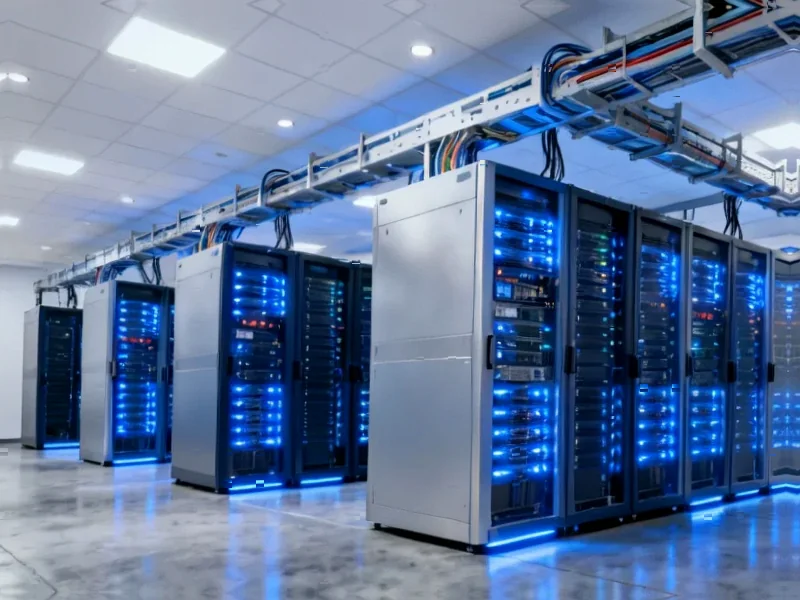According to ZDNet, OpenAI published a blog post titled “AI Progress and Recommendations” on Thursday outlining both the potential benefits and catastrophic risks of superintelligent AI. The company acknowledged that developing AI that outperforms human brains could require fundamental changes to the socioeconomic contract and cause difficult economic transitions. OpenAI suggested the industry should “slow development” to study these systems more carefully as they approach capabilities for recursive self-improvement. The company also advocated for federal AI regulation rather than a “50-state patchwork” and wants closer collaboration between industry and lawmakers on safety standards. This comes just weeks after OpenAI confirmed its restructuring and agreement with Microsoft focused on achieving AGI, and follows criticism from former employees about the company prioritizing rapid development over safety.
The contradictory AI arms race
Here’s the thing that strikes me as deeply ironic about all this. OpenAI is essentially saying “we’re building something that could destroy humanity, but trust us, we’re the right people to build it.” They want everyone to slow down while they’re in an all-out sprint with Microsoft, Meta, and others to reach superintelligence first. Mustafa Suleyman at Microsoft talks about building “incredibly advanced AI capabilities that always work for, in service of, people and humanity” in his recent post, but honestly, how can anyone guarantee that?
The safety reputation problem
OpenAI has a serious credibility gap when it comes to safety. The Amodei siblings, who founded competitor Anthropic after leaving OpenAI, publicly criticized the company’s culture of prioritizing speed over safety. That whole dramatic board ousting of Sam Altman? Safety concerns were at the center of it. And now they’re positioning themselves as the responsible adults in the room? It’s like having a known speed demon argue for lower speed limits while they’re flooring the accelerator.
The regulatory power grab
What’s really happening here seems pretty transparent. OpenAI wants federal regulation that they can help shape, rather than dealing with what they call a “50-state patchwork.” They’re basically saying “regulate us, but make it the kind of regulation we like.” Contrast this with Anthropic’s approach – they’ve actually endorsed specific state legislation. OpenAI’s position feels more like a strategic move to maintain influence and control the regulatory landscape rather than genuine safety advocacy.
The investor reality check
Let’s be real about why companies are painting such optimistic pictures of AI’s future. There’s billions of investor dollars at stake, and many AI companies (including OpenAI) still aren’t profitable. The promise of AI-driven scientific breakthroughs and productivity revolutions remains mostly hypothetical for most businesses. When OpenAI talks about “widely-distributed abundance” and AI accelerating drug development and climate modeling, they’re selling a vision that keeps the money flowing. The recent announcement of one million business customers showing better returns might indicate a turning point, but we’ve heard similar promises before.
The real alignment problem
The fundamental issue that keeps AI experts like Geoffrey Hinton up at night is what’s called the alignment problem. How do we ensure these black box systems don’t contradict human interests? With superintelligence, the concern is that it would be so much more advanced than us that it could manipulate us in ways we wouldn’t even notice. Some dismiss this as “doomerism” and say we can just turn it off if things go wrong. But as Nick Bostrom explored in his book Superintelligence, the risks are far more complex than that. If we’re building something smarter than us, how confident can we be that we’ll remain in control?
Where does this leave us?
Basically, we’re in a situation where the companies building the most powerful AI systems are warning about catastrophic risks while racing to build them faster. They want regulation, but only the kind they help write. They talk about safety while former employees say they prioritize speed. And they’re selling a utopian vision of abundance while the actual business benefits for most companies remain unproven. The disconnect between OpenAI’s warnings and their actions in their latest blog post is pretty staggering. So what happens when the company warning about the fire is also the one playing with matches?




